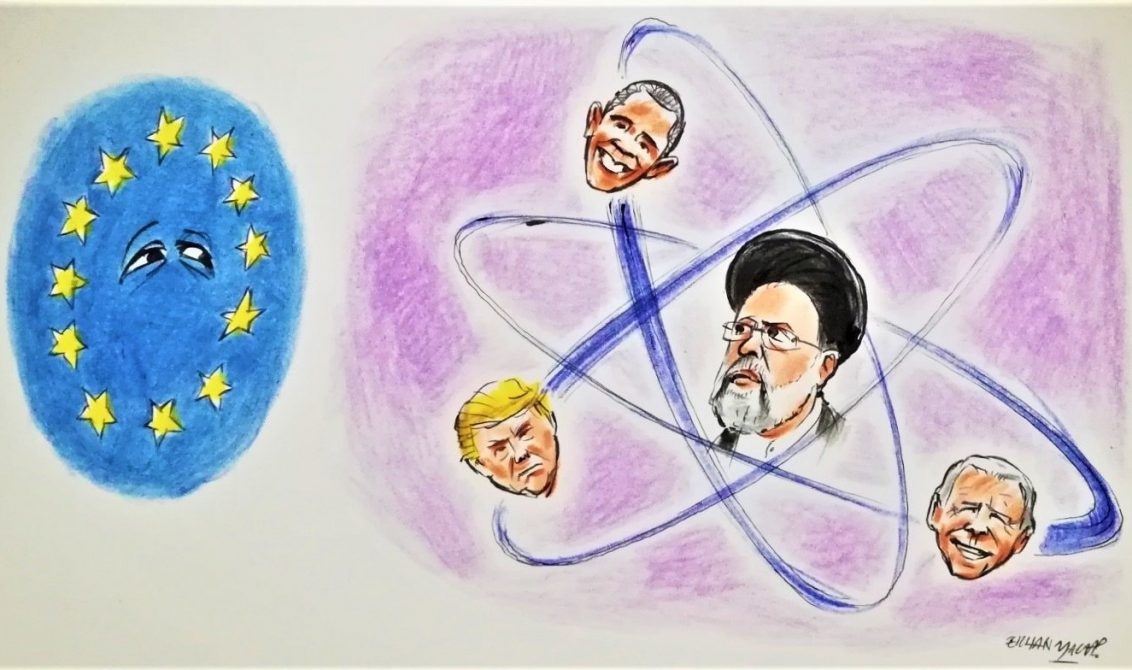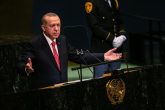On Aug. 5, 2021, Iran’s new President Ebrahim Raisi took office with the oath ceremony held in parliament. In his first statement just after the election, Raisi declared that his priority in foreign policy would be to improve Iran’s relations with neighboring countries. He also criticized the U.S.’ failure to comply with the 2015 nuclear agreement and the European Union’s failure to keep its promises to Iran.
On this axis, with the inauguration of the new administration in Iran, many are curious to see how the Iran-EU relations would evolve. For this, some inferences can be made about the possible course of bilateral relations based on the recent events in Iran-EU relations.
First of all, it should be underlined that since the U.S. is the decisive actor in Iran’s institutional relations with the EU and its member states, the development of this country’s relations with its European partners has been under the domination of Washington. As a matter of fact, because of the nature of trans-Atlantic relations, the EU and its members follow U.S.’ relations policy with Iran. It is quite interesting that, since the revolution of 1979 in Iran, European leaders, who were afraid to even pose in the same photograph as their Iranian colleagues, refrained from confronting the U.S. in terms of relations with this country.
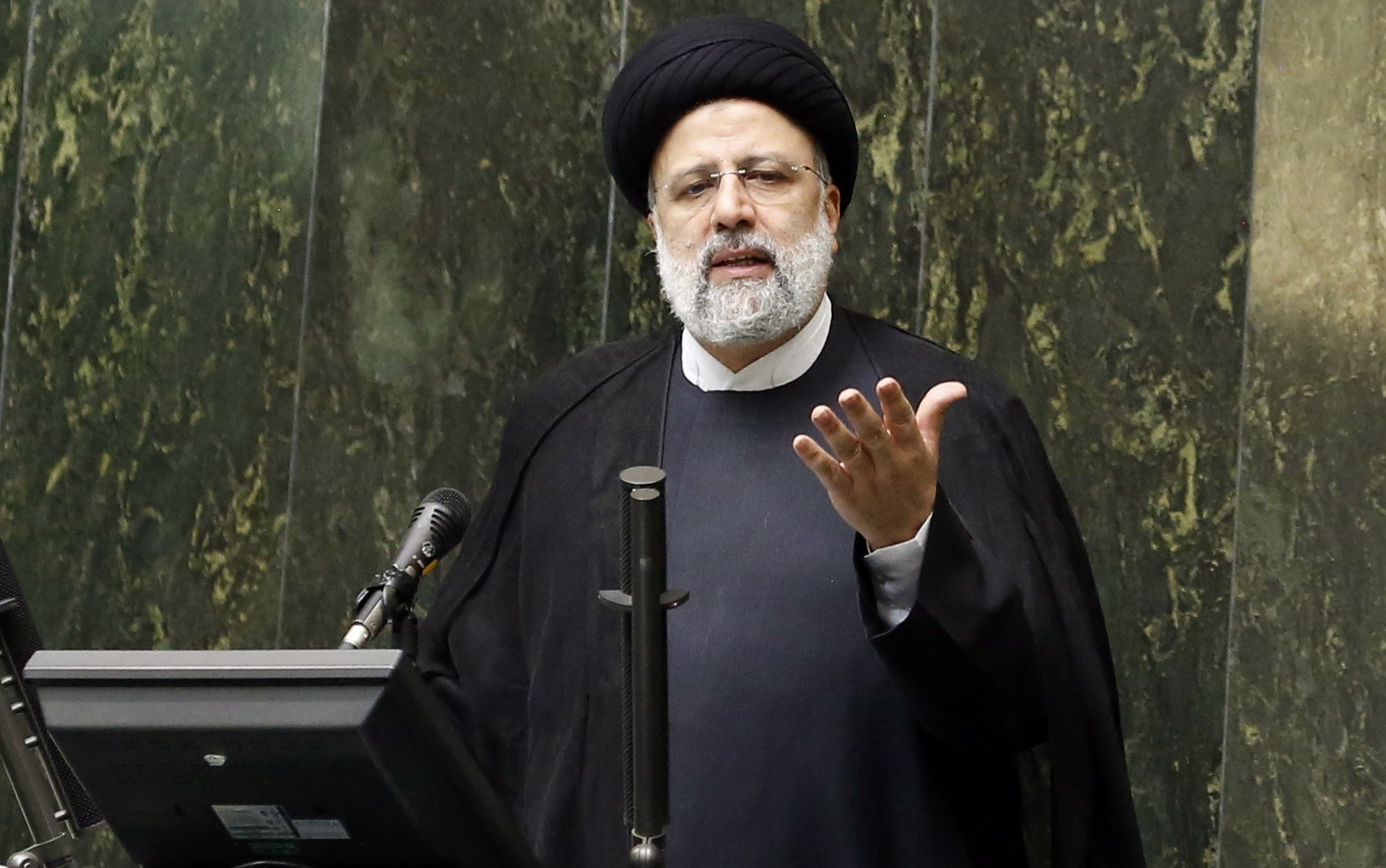 Iranian President Ebrahim Raisi presents his cabinet at the Iranian parliament in Tehran, Iran, Aug. 21, 2021. (EPA Photo)
Iranian President Ebrahim Raisi presents his cabinet at the Iranian parliament in Tehran, Iran, Aug. 21, 2021. (EPA Photo)From Obama to here
On the other hand, a new era began with the steps taken by former Democrat President Barack Obama in the U.S. to work with Iran and make it a controllable actor in the international system during the administration of Hassan Rouhani. The Joint Comprehensive Action Plan (JCPOA), signed between Iran and the P5+1 countries in 2015, was the most important outcome of this period.
The efforts of the EU and three major member states (France, the U.K. and Germany) played an important role in this diplomatic achievement. It actually ensured that Iran’s nuclear program will be “peaceful” in return for the comprehensive lifting of long-standing sanctions related to Iran’s nuclear program.
However, Obama’s successor, the Republican Donald Trump, decided to withdraw from the JCPOA in 2018, citing that the agreement reached with Iran was insufficient. The Trump administration started to reimplement sanctions on Iran. Thereupon, Iran announced that it would no longer comply with the commitments of the 2015 nuclear agreement. The decision to withdraw from the JCPOA drew reactions from other actors who were part of the agreement.
The EU and its member states, which are among these actors, also reacted sharply to this unilateral decision. The political elite of the EU and the leaders of the foreground member states declared that they would abide by the nuclear agreement. Therefore, they displayed a common stance against the U.S., an unprecedented case in the history of trans-Atlantic relations.
Even the U.K., the European country that has the closest relations with the U.S., has declared that it rejects this decision and that it will continue its commercial relations with Iran. In this context, the European Commission has brought forward different mechanisms such as “The Blocking Statute” and “Special Purpose Vehicle” in order for European companies to continue their commercial activities in Iran.
In addition, a mechanism called “Instrument in Support of Trade Exchanges (INSTEX)” was implemented by Germany, France and the U.K. in order to facilitate legitimate trade between Europe and Iran as well as to maintain the momentum gained in trade relations with this country. Despite this, as the U.S. hardened its policy toward Iran, the EU and its member states were unable to continue their stance.
As a matter of fact, this reality has an important place in the reproachful statements of the Iranian political elites toward the EU and its member states. Following the Trump administration’s unilateral decision, JCPOA stakeholders spearheaded a new diplomatic initiative to keep the deal going. It was held for the first time in Vienna in 2019 and is currently chaired by the Deputy Secretary-General of the EU Foreign Affairs Service, Enrique Mora.
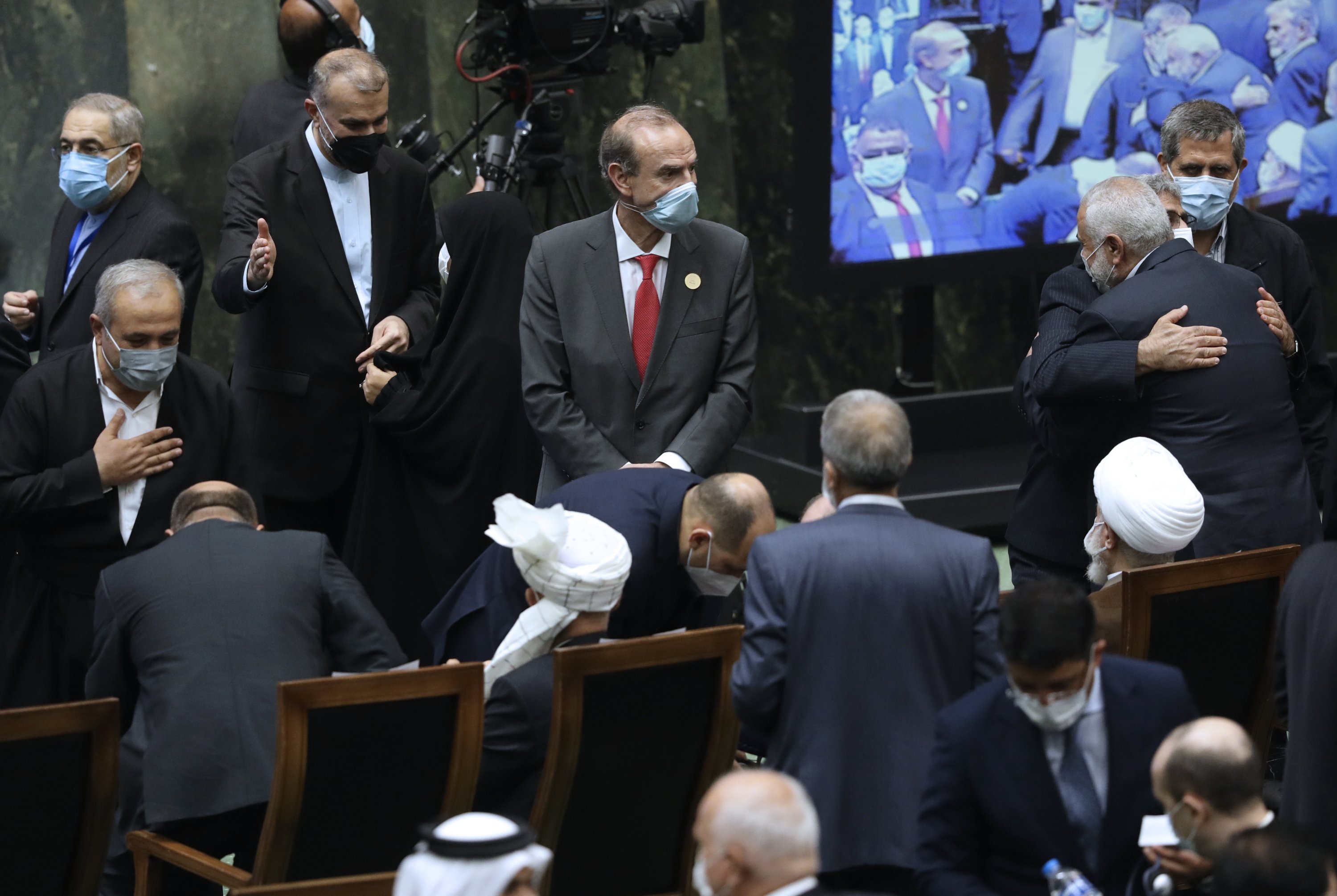 Deputy Secretary General and Political Director of the European External Action Service (EEAS) Enrique Mora (C) arrives to attend the swearing-in ceremony of Iranian President Ebrahim Raisi at the parliament in Tehran, Iran, Aug. 5, 2021. (AP Photo)
Deputy Secretary General and Political Director of the European External Action Service (EEAS) Enrique Mora (C) arrives to attend the swearing-in ceremony of Iranian President Ebrahim Raisi at the parliament in Tehran, Iran, Aug. 5, 2021. (AP Photo)The future of diplomatic efforts
The current Joe Biden administration has not been involved in these talks yet. In addition, Raisi announced that Iran will continue its ballistic missile program and uranium enrichment. Since the U.S. is not expected to soften its stance toward Iran in the upcoming period, it does not seem possible to start a new era based on a positive agenda in Iran’s relations with Europe.
Despite this, the diplomatic efforts of the EU and member states in Vienna will continue for the reenactment of the JCPOA. It should also be noted that, due to U.S. sanctions, the EU and its member states have not been able to develop their trade relations with Iran sufficiently. Because of the international sanctions imposed on Iran, the trade volume between EU countries and Iran as a whole remained at a very low level of 7.5 billion euros ($8.8 billion) until 2015.
However, thanks to the JCPOA signed in 2015, the trade volume started to increase rapidly. As a result of the agreement, the trade volume between Iran and the EU approached 14 billion euros in 2016 and 21 billion euros in 2017, respectively. However, after Trump’s decision to withdraw from the JCPOA, the trade volume started to decline rapidly this time and decreased to 18 billion euros in 2018 and 5 billion euros in 2019, respectively.
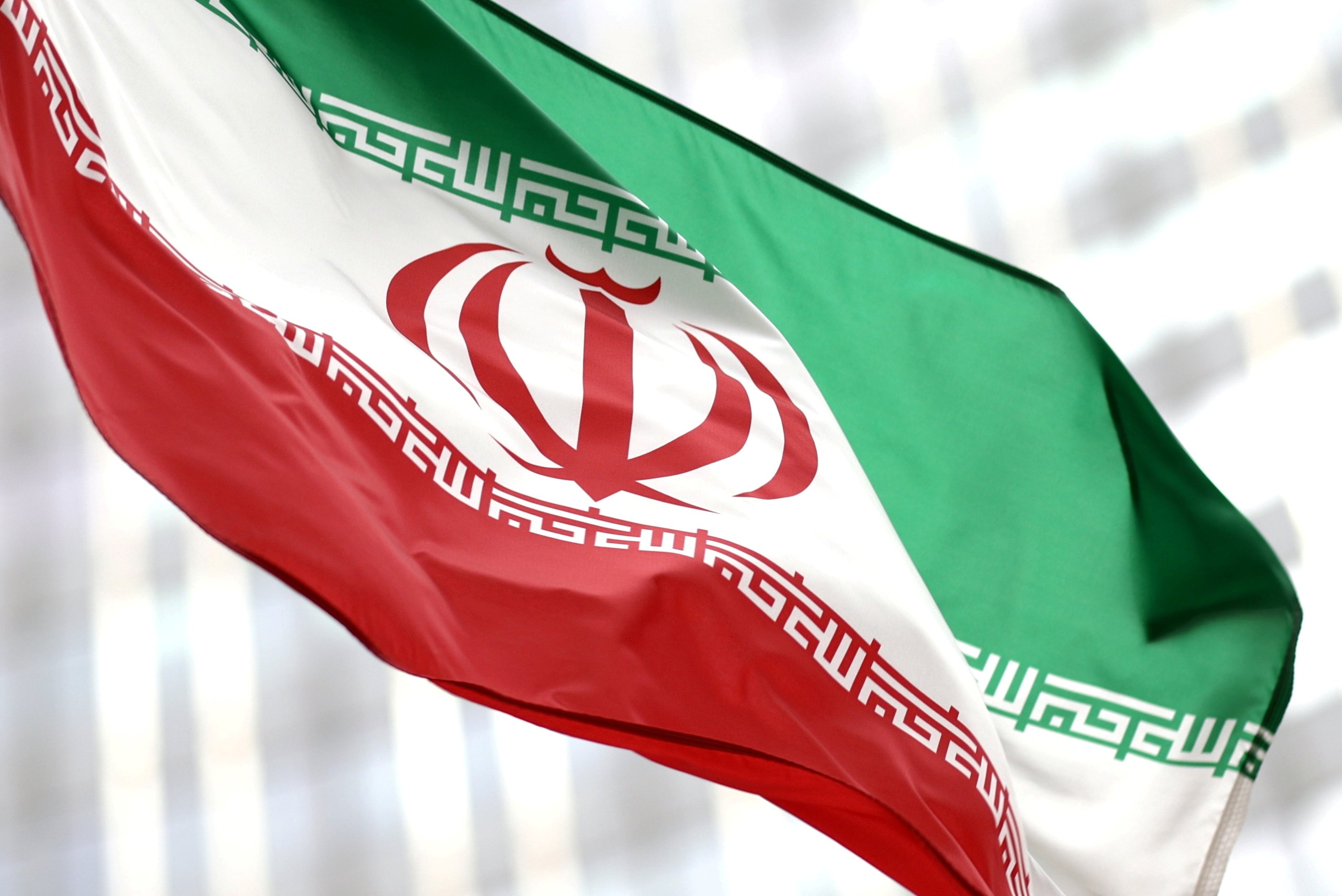 Iranian flag flies in front of the U.N. office building, housing IAEA headquarters, amid the COVID-19 pandemic, in Vienna, Austria, May 24, 2021. (REUTERS Photo)
Iranian flag flies in front of the U.N. office building, housing IAEA headquarters, amid the COVID-19 pandemic, in Vienna, Austria, May 24, 2021. (REUTERS Photo)From this point of view, it seems that the low level of Iran-EU trade relations will continue until the JCPOA or a similar regulation that foresees the lifting of sanctions on Iran is put into effect. Therefore, in order to reverse this situation, the EU and its member states are expected to suppress the Biden government in the coming period. To conclude, unless the U.S. policy toward Iran changes, it seems difficult for the EU and member states to open a new page in the relations with Iran.
Despite this, the EU and member states will continue their mediation activities between the U.S. and Iran. Moreover, the EU might think about opening an office in Iran in order to enhance diplomatic relations. Although such activities are not expected to yield positive results in the long run, reducing the sanctions on Iran to some extent will be the EU’s top priority.
In this article
- Opinion
- Biden Administration
- Daily Sabah
- Ebrahim Raisi
- European Union (EU)
- France
- Global Actors | Local Actors
- Instrument in Support of Trade Exchanges (INSTEX)
- Iran Nuclear Deal | Joint Comprehensive Plan of Action (JCPOA)
- Iranian President
- Islamic Republic of Iran
- Joe Biden
- Sanctions
- Trump Administration
- United States (US)
- US Sanctions
